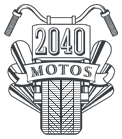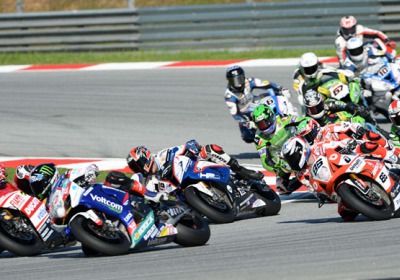2015 WSBK Regulations Refined – Limited Engine Tuning Allowed
Mon, 16 Jun 2014The World Superbike Championship has revised the its regulations for the 2015 season when all Superbikes are to adopt the current EVO class standards. The EVO rules, introduced as a sub-category in this season, were designed to reduce the cost of racing and more accessible to smaller teams by restricting engine modifications to Superstock-level regulations.
At a meeting June 12 at Spain’s Barcelona-Catalunya Circuit, the Superbike Commission made amendments to allow some modifications while also allowing manufacturers to develop their own electronics.
Most major engine components including valves, pistons and crankcases will remain stock, but teams will be allowed to modify camshafts and port cylinder heads, though no welding is allowed. Con-rods may be changed, but only for materials of equal weight and similar material. Teams will also be restricted to one set of gearbox ratios for the whole season.
For teams running Twins like Ducatis or EBRs, their Superbikes will no longer be weighed down by ballast for balance against smaller displacement four-cylinder bikes. Instead, their intakes will be restricted.
As for electronics, manufacturers will be allowed to continue developing their own software, but they must also make them available to other privateer teams running the same motorcycles in what the rules call a “Superbike Kit System”. Kits will include all electronic parts not already included on the stock production models except the wiring harness. These kits will be made available three times a season at a capped price of €8000 (US$10,860) to all other teams, not just for WSBK but for all other FIM championships including the Endurance World Championship.
Manufacturers must also make Ride-by-Wire throttle body kits available to other teams for the 2015 and 2016 seasons. Kits will be capped at a price of €2500 (US$3395) and will be provided either by the manufacturer or an appointed supplier. For 2017 onwards, the series will adopt standardized throttle bodies.
[Source: FIM]
By Dennis Chung

